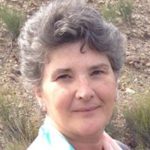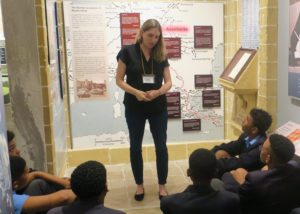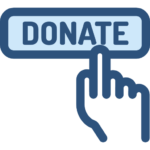CANDLE & CHRONICLE
Quarterly Newsletter: May 2023
Why We Do What We Do

We are in the season of remembrance. From Passover to Yom HaShoah to Yom HaZikaron, we consider our history. As we reflect, we must also give thought to how that history is being taught in our schools.
In a recent essay in the Atlantic, author Dara Horn suggested that if not taught carefully, Holocaust education can fuel antisemitism. Students learning about World War II have reportedly acted out in class with Nazi salutes and other expressions of antisemitism. In an interview for Facing History and Ourselves, Dr. Louis Kraus, director of child and adolescent psychiatry at Rush University Medical Center in Chicago, said that teenagers cannot conceptualize cause and effect. They see antisemitism as ‘funny’ and do not realize how devastating it can be.
Nonetheless, we must teach the Holocaust in school, because if students do not get their questions answered by trusted teachers, they will seek out their peers, and then head straight for the internet. The web is sprinkled with inaccuracy and offensive language. Sick jokes and cruel cartoons soon fill the teenagers’ minds and spew forth as attention-getting behavior.
At Teach the Shoah, we know that the younger a child is when introduced to compassion, the more it will become a part of how they see the world around them. This is why we begin Holocaust education early, as young as kindergarten. The word “Holocaust” is never spoken at this level, we simply teach how to address bullying, and yes, kindergarten children can face such situations. Grade by grade, we introduce a little more of the story, in careful, age-appropriate ways.
However we teach the Holocaust, we always talk about life before and life after, emphasizing that the Holocaust was only one small part of these people’s lives. This is essential because, as Horn points out, part of the problem is a lack of education about Jews as people. I often distribute questionnaires before my public speaking events asking about knowledge of the Holocaust and include a question asking what they know about Jews. The misinformation is deeply disturbing.
We recognize, therefore, that education is the key, but we must educate the instructors first. Part of our work at Teach the Shoah is to give educators the tools to know what is appropriate for their students’ mental age, how to tell these stories, and where to get the resources to meet their needs.
The Nazi propaganda machine did its job all too well; its evil still resonates in our communities and our classrooms masquerading as facts. Help us help the educator.
B’shalom, In Peace,
Violet
“Our Job is to be a Vessel:” Orli Barnett
 Orli Barnett has always loved museums. “I’ve always found the museum space to be very magical,” she says. “It’s so immersive, absorbing, engaging, you forget about the outside world and are transported into another time.”
Orli Barnett has always loved museums. “I’ve always found the museum space to be very magical,” she says. “It’s so immersive, absorbing, engaging, you forget about the outside world and are transported into another time.”
Orli is the education director for the Cape Town Holocaust and Genocide Center in Cape Town, South Africa. She is passionate about the museum’s values, “to create a more just society where tolerance and the celebration of diversity and the celebration of different people’s cultures and backgrounds are upheld.”
“I feel very lucky to be working in a field where it has positive impact,” she says.
As education director, Orli spends a lot of time working with students. She’s noticed that it is the oral testimonies, the stories, that stay with the students. It is this realization that connects her to Teach the Shoah.
“What I love about Teach the Shoah is the commitment the organization has to preserving the oral histories of people who actually lived through the history,” she says. Teach the Shoah’s storytellers are “so impactful, and immersive, and engaging, that I forget that it’s not actually the real eyewitness who’s telling the story.”
Becoming a storyteller herself was a bit more challenging. She had told stories from a historical and academic background – Orli has an MA in Holocaust Studies from Haifa University in Israel – but immersing herself in the story was new territory for her. She found it mentally and emotionally exciting and challenging, and enjoyed the impact she could have on the audience with these new techniques.
“There is a turning point where I have to let go of the cerebral, overthinking, overanalytical side of my brain and open myself up to immersing myself in the story, the way that museums are immersive,” Orli says. “Somewhere along the line it actually becomes really exciting to be immersed in this world and realize that, although I was never there and I’ll never understand it, there is a part of the story that has to do with family and human emotion and the impact that humans have on each other that is universal. That’s where I can connect with the history.”
“Our job is to be a vessel.”
The stories that Orli tells are the stories of survivors in her community. She knows them personally, and she finds that her closeness to the subject helps her tell their story. In spite of her academic background, Orli has discovered that although historical context is very important, it is the “tiny fragments of human experience that are very small scale that are actually the most engaging, the most moving.”

Orli has taken these fragments and incorporated them into her tours. “I realize that that makes the history real for the learners. They are looking at black and white images, which seem ancient to them. When we talk about survivors who actually happen to still be alive, that this happened in living memory, it does really help to bring credibility and gravitas to the tour.”
Orli is looking forward to future collaborations with Teach the Shoah. “What Teach the Shoah does that is so great is open up the field of Holocaust education to everyone,” she says. “You don’t have to work in a museum. You don’t have to be a historian. You don’t have to have a Master’s degree in Holocaust studies to be part of it.”
“I love that. And I also love that it doesn’t matter what level of knowledge or what level of experience you have in storytelling. Anyone can be a storyteller.”
“That’s more and more important because we need everyone on board. We need people who want to pass on the torch.”
News & Events
This has been an amazing spring.
Our annual online ritual for Holocaust remembrance, Light from the Darkness, included stories from Leora Lazarus, Greg Eftimie, Tanya Wisoker, Deborah Fripp, and Lynne Feldman, as well as beautifully incorporating the music and poetry of Cantor Karen Webber. Jennifer Zunikoff led us through several audience-participation questions that drew everyone into the action. If you missed it, you can find it on the YouTube channel here: www.youtube.com/watch?
This Yom HaShoah marked the 80th anniversary of the Warsaw Ghetto Uprising. To honor that anniversary, we held two story-infused lectures, Sharing Their Stories: Uprisings and Resistance. Lynne Feldman led the programs with the help of storytellers Kathleen Mullen, Orli Barnett, Violet Neff-Helms, and Deborah Fripp, along with primary source readings from Greg Eftimie. If you missed it, you can watch it on the YouTube channel here: www.youtube.com/
In April, Deborah’s review of The Devil’s Confession, a new movie about the Eichmann trial, was published in L’Chaim Magazine: www.lchaimmagazine.com/the-devils-confession/.
In May, we inaugurated two new multi-week classes: Moving from Testimony to Story, an in-depth exploration Holocaust storytelling for a general audience and Storytelling for Families of Survivors, an equivalent course aimed at people with family stories, timed for Singapore. We are excited that the Moving from Testimony to Story class was completely filled. If you were hoping to participate but couldn’t, we will be holding both classes again in August. More information can be found here: movingfromtestimonytostory_
We are working on several exciting programs for June and July. Keep an eye on your email for more information. We will be at NewCAJE in New Jersey in July and hope to see you there.
Follow us on Facebook and online for more information on upcoming events and news. You can also watch previous programs, including all the International Holocaust Memorial Day programs, at our YouTube page.
We feel strongly that all our events should be free so money is not a constraint on participation.
We also feel strongly that our storytellers and facilitators should be paid for their work.
Your donations help us meet both of these goals.
Follow Us on Facebook & YouTube
© 2020 All rights reserved

